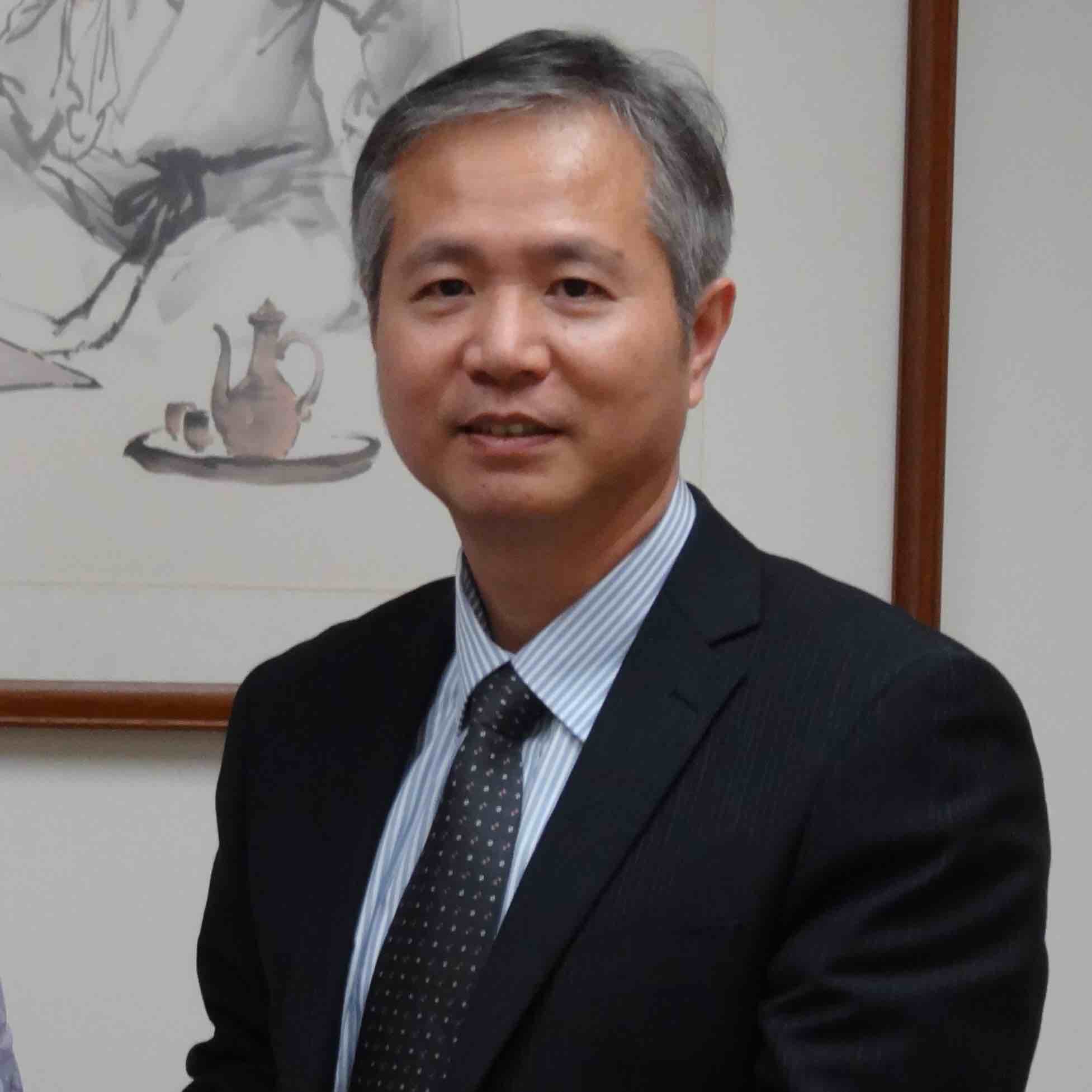:::ICCE 2019
Keynote Speakers
C1: ICCE Conference on Artificial Intelligence in Education/Intelligent Tutoring System(AIED/ITS) and Adaptive Learning |
|
 |
Stephen J.-H. Yang, National Central University, Taiwan |
|
Title of Speech: Precision education: new challenges for AI in education |
|
|
Abstract: After decades of research on AI in education, we have solved some problems and are facing new challenges. Precision education is one of the new challenges of applying artificial intelligence, machine learning, and learning analytics for adaptive and individualized learning in a context-aware ubiquitous learning environment. The goal of Precision education is to identify at-risk students as early as possible and provide timely intervention based on student learning experiences. In this research, at-risk students are confined to students who were diagnosed could get low GPA (low academic performance), could drop/withdraw a course, or students who were low engagement in terms of learning behavior, emotion, and cognition. The idea of Precision education came from The Precision Medicine Initiative (https://obamawhitehouse.archives.gov/precision-medicine), which was proposed by President Obama in his 2015 State of the Union address, the Initiative is a new research effort to revolutionize the medical treatment of disease. As addressed in this Initiative, most treatments were designed for the average patients as a result of one-size-fits-all-approach without taking into account individual differences in people genes, environments, and lifestyles; similarly, most pedagogy is designed not fully consider students genes IQ, learning styles, learning environments, and learning strategies. Therefore, by carrying the research focus of Precision medicine, which is to improve the diagnosis, prediction, treatment, and prevention of disease, we define the new challenges of Precision education on emphasizing the improvement of diagnosis, prediction, treatment, and prevention of at-risk students. |
|
C2: ICCE Conference on Computer-supported Collaborative Learning (CSCL) and Learning Sciences |
|
 |
Joke Voogt, University of Amsterdam, the Netherlands |
|
Title of Speech: Preparing learners for living and working in the digital age |
|
|
Abstract: Due to technological developments young learners have to cope with many challenges related to living and working in the digital age. Often the term of 21st century competencies is introduced to point to the competencies students need to acquire to be able to cope with these challenges. However it is not that easy to incorporate 21st century competencies in the school curriculum. It requires a focus on meaningful learning through authentic tasks. Curriculum and assessment practices need to allow for such an approach to learning and schools and teachers need to be prepared to teach 21st century competencies. The focus of the presentation will be on research-based examples of meaningful learning through authentic tasks using technology and the conditions that need to be in place to realize them in educational practice. |
|
C7: ICCE Conference on Practice-driven Research, Teacher Professional Development and Policy of ICT in Education (PTP) |
|
 |
Mina. C. Johnson, Arizona State University, USA |
|
Title of Speech: VR, Augmented, and Mixed Realities (XR) for STEM and Game-based Learning: Focus on Design |
|
|
Abstract: The Embodied Games Lab specializes in both creating and efficacy testing educational XR content. The opportunities for researching STEM education with immersive Virtual Reality (VR) have grown tremendously over the past three years. High resolution, stand-alone headsets are now affordable for many classrooms. Soon, teachers will ask, "Where is the quality educational content?" We need to start creating those experiences now. Many instructors and technologists want to move past the gaze-only style of mobile, non-interactive VR. The new generation of interactive hand controls allows learners to be very active and embodied as they manipulate content - in VR especially. The talk will describe and give examples of a set of 17 best practices in VR. Additionally, not all phenomena should be re-envisioned in 3D. It is expensive, and can perhaps be overwhelming; the sense of "presence" created by IVR is profound and immediate. This talk will also focus on which phenomena should be chosen. It will highlight how to use the body and gestures to interact with mediated content, and methods for embedding assessment into content. These sorts of embedded and game-like assessments can help teachers understand if the learner is really comprehending, or simply 'going through the motions'. |
|
C3: ICCE Conference on Advanced Learning Technologies, Learning Analytics, Platforms and Infrastructure (ALT) |
|
 |
Hiroaki Ogata, Kyoto University, Japan |
|
Title of Speech: Toward Evidence-Based Education through Learning Analytics |
|
|
Abstract: The multi-disciplinary research approach of Learning Analytics (LA) has provided methods to understand learning and teaching process by analyzing logs collected during diverse teaching-learning activities and potentially enrich such experiences. This talk will propose the Learning Evidence Analytics Framework (LEAF) and draw a research road-map of an educational big data-informed evidence-based education system. It focuses on the approach of developing novel techniques by applying the knowledge base of LA that can help to extract evidence of effective teaching-learning practices. Finally, it shows that teachers can refine their instructional practices, learners can enhance learning experiences, and researchers can study on the dynamics of the teaching-learning cases with LEAF. |
|
Invited Speakers
C4: ICCE Conference on Classroom, Ubiquitous and Mobile Technologies Enhanced Learning (CUMTEL) |
|
 |
Bodong CHEN, University of Minnesota, USA |
|
Title of Speech: Creating Conditions for Knowledge Building for the Public Good |
|
|
Abstract: Knowledge creation and innovation are becoming pervasive and essential in meeting today's societal demands. This has led to increasing pressure on education to explore new pedagogical models, to move from knowledge transmission to educational paradigms that are more creative, collaborative, and connected. Knowledge Building represents a longstanding effort to redesign education as a knowledge-creating enterprise. Knowledge Building immerses learners in creative work with ideas from the earliest grades; it engages learners in continually improving knowledge of value to their class community; it challenges learners to take greater collective responsibility for their work. Students are asked to identify promising ideas, participate in meta-cognitive dialogues, play epistemic games, assess themselves, and grapple with complex, emergent knowledge structures. These competencies and high-level learner agency espoused by Knowledge Building are needed more than ever in the era of automation and A.I. In this talk, I will introduce ongoing design-research projects that attempt to further stretch students' knowledge building in classrooms to connect more deeply with the public. Overall, I posit that with proper pedagogical and socio-technical conditions learners are capable of meaningfully participating in public discourse while advancing curricular goals. In particular, I will introduce computer-supported collaborative learning (CSCL) environments we designed to support ninth graders to study "Energy and Matter" in connection with the "Green New Deal" in the United States; I will also showcase computational research conducted by sixth graders in relation to the United Nations Sustainability Development Goals. Alongside the explication of the design principles and designed environments, I will share episodes of students' knowledge building and evidence of their knowledge advancement, expressiveness, and higher-order competencies. In doing so, I hope to challenge our entrenched beliefs about learner capabilities and highlight the potential of nurturing conditions in K-12 classrooms for knowledge building that connects with and contributes to the public good. |
|
C5: ICCE Conference on Digital Game and Digital Toy Enhanced Learning and Society (GTEL&S) |
|
 |
Xiaoqing GU, East China Normal University, China |
|
Title of Speech: Embrace data intelligence in designing for the e-Schoolbag: Addressing the 1:1 challenges |
|
|
Abstract: The popularity of personal mobile devices has fuelled interest in deploying this technology to transform the classroom. In general, 1:1 computing refers to the projects where technology is available to all students and their teachers. Such developments are now widespread in China, where the personal digital device in class has also been termed the 'e-Schoolbag' initiative. One finding echoed in 1:1 projects across the world is that when these technologies are implemented, the effect is much less transformative than expected. Our studies intended to indicate how best to innovate 1:1 classroom practice from two perspectives: first, the innovative learning design in support of teaching and learning in the 1:1 classroom; second, learning analytics in an ICT-rich environment to support learning diagnosis and learning improvement. I am going to unfold the innovative learning design for 1:1 classroom with a project centered on the development of e-Textbook. In a tradition of instruction that relies heavily on the textbook, the emerging e-Textbooks may become implicated in how teachers could innovate practice within the 1:1 class. I will first introduce a large scale e-Textbook project, where the textbook is still at the central place of the 1:1 classroom; follow that I will introduce a case study, in which we invited a classroom teacher to take up the role of designer in shaping the content of the class text. Both the design and the access to its outcome by students were made possible by the tablet technology at the heart of the e-Schoolbag idea. The challenge of 1:1 classroom lies not only on the innovation of learning design, but also the learning intervention on the active learning activities that follows. In this sense, I am going to start with a large scale project with a heavy feature on harnessing data intelligence to innovate learning; follow that I will introduce a case study to illustrate how the learning analytic could help deal with the challenges on 1:1 classroom. |
|
C6: ICCE Conference on Technology Enhanced Language Learning (TELL) |
|
 |
Yuichi ONO, University of Tsukuba, Japan |
|
Title of Speech: Flipped-classroom course model with ICT support to activate discussion in foreign language classrooms |
|
|
Abstract: There is a general agreement among foreign-language researchers and instructors that course models should meet the requirements of "vigorously changing societies" in the twenty-first century. On the basis of this general agreement, there have been various types of learning paradigms proposed and assumed in order to construct appropriate foreign language course models. In this thematic-based invited talk, I discuss the flipped-classroom course model to enhance discussion course model. My talk starts with some theoretical backgrounds related to the current research such as Interest-Based Learning, Seamless Learning, Project-Based Learning Skills, Information Literacy Skills, and Foreign Language Anxiety in constructing the proposed course model. I introduce the recent policies set out by the Ministry of Education, Culture, Sports, Science, and Technology (MEXT) Japan; the relationship of national curriculum with the so-called one-to-one (one tablet PC to one student) policy. Secondly, I discuss some merits of utilizing online educational resource (OER); such as YouTube, TED Talks, Kahn Academy, cMOOC/xMOOC, etc, and suggest the potentials to draw learner's willingness to cultivate and deepen their interest through choosing these authentic educational online materials. The learning support system, or quiz generator, to encourage learners nicely to familiarize these authentic materials in terms of vocabulary learning and listening practice is also introduced. Thirdly, I report some findings of my research concerning Flipped-Classroom Course Model that was implemented to enhance EFL learners' information skills. Specifically, the change of learner's factors such as proficiency, foreign language anxiety, PBL skill awareness are analyzed through the project and how they proceed their learning under the ICT environment within and outside the classroom. Lastly, my talk concludes that the course model employing ICT-supported Flipped Classroom is successful so far in enhancing interactive activities in the classroom in the sense of active learning and information literacy acquisition, followed by some future implications. |
|
